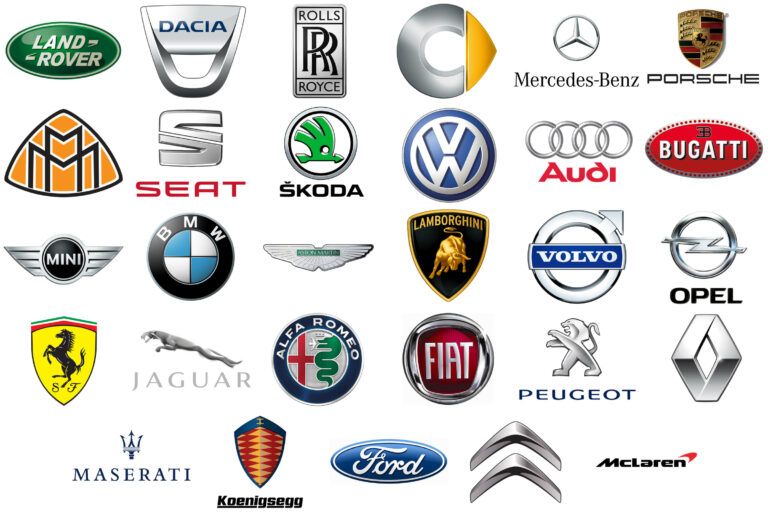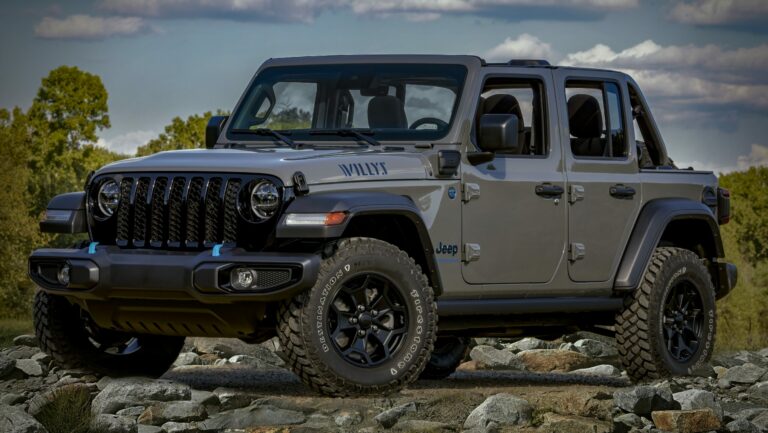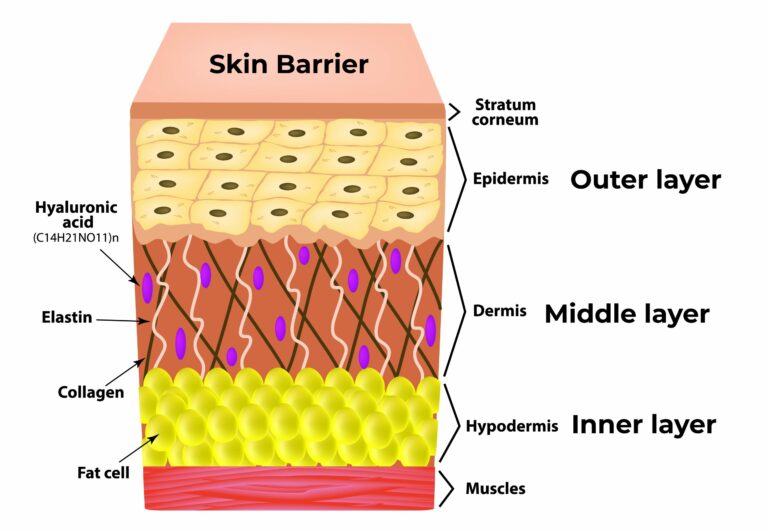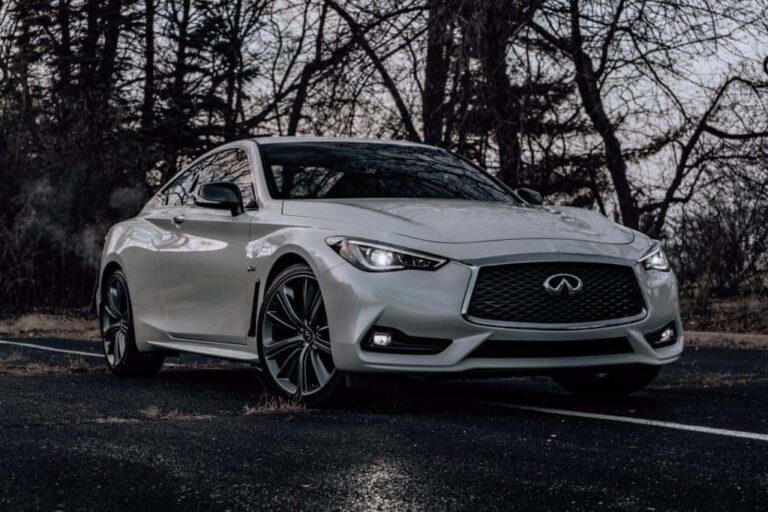Best Japanese Car Brands: A Comprehensive Guide to Automotive Excellence
Best Japanese Car Brands: A Comprehensive Guide to Automotive Excellence cars.truckstrend.com
For decades, Japanese car brands have held an unrivaled position in the global automotive landscape. Renowned for their unwavering commitment to quality, groundbreaking innovation, and exceptional value, they have consistently set benchmarks that other manufacturers strive to meet. From bustling city streets to rugged off-road trails, and from family-friendly SUVs to exhilarating sports cars, Japanese vehicles offer a diverse range of options that cater to virtually every need and preference. This comprehensive guide delves into what makes these brands stand out, highlights the key players, and provides practical advice for choosing the perfect Japanese car.
The Pillars of Excellence: Why Japanese Cars Dominate
Best Japanese Car Brands: A Comprehensive Guide to Automotive Excellence
The widespread acclaim for Japanese car brands isn’t accidental; it’s built upon a foundation of core principles and consistent execution. Several key factors contribute to their enduring popularity and perceived superiority:
- Unmatched Reliability and Durability: Perhaps the most defining characteristic of Japanese cars is their legendary reliability. Brands like Toyota and Honda consistently top reliability surveys, meaning fewer breakdowns, lower maintenance costs, and greater peace of mind for owners. This stems from meticulous engineering, rigorous quality control, and the "Kaizen" (continuous improvement) philosophy deeply embedded in their manufacturing processes.
- Exceptional Fuel Efficiency: Japanese manufacturers were pioneers in fuel-efficient technologies, particularly with the widespread adoption of hybrid powertrains. Their commitment to maximizing miles per gallon (or kilometers per liter) helps owners save money at the pump and reduces environmental impact.
- Pioneering Innovation and Technology: While often perceived as conservative, Japanese brands are at the forefront of technological advancements. They have led the charge in hybrid technology, advanced safety features (like adaptive cruise control, lane-keeping assist, and automatic emergency braking, often bundled under systems like Toyota Safety Sense or Honda Sensing), and sophisticated infotainment systems. They are also aggressively investing in the future of electric vehicles (EVs) and autonomous driving.
- Strong Resale Value: Thanks to their reputation for reliability and longevity, Japanese cars typically boast excellent resale values. This means your investment depreciates slower than many competitors, offering a significant financial advantage when it’s time to sell or trade in.
- Diverse Range and Versatility: From compact city cars and family sedans to rugged trucks, versatile SUVs, and luxurious performance vehicles, Japanese brands offer an incredibly broad spectrum of models. This diversity ensures that whether you’re a first-time buyer on a budget or a luxury connoisseur, there’s a Japanese vehicle designed to meet your specific requirements.
- Manufacturing Precision and Quality Control: The attention to detail in Japanese manufacturing is legendary. Every component is designed and assembled with precision, resulting in vehicles that feel solid, operate smoothly, and last for many years.
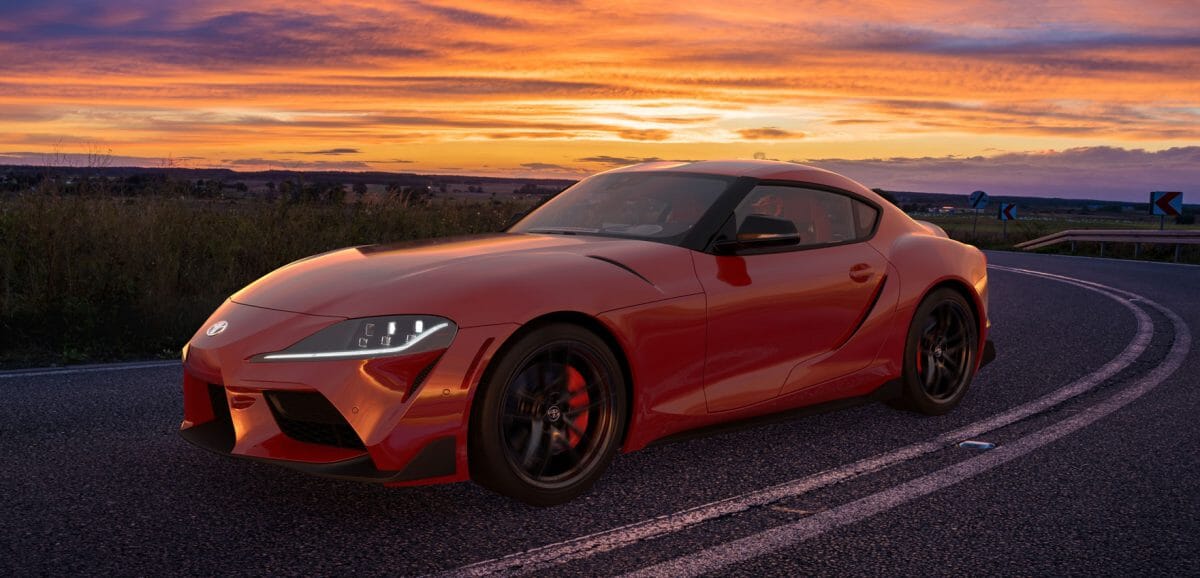
Spotlight on the Titans: Top Japanese Car Brands
Let’s explore the leading Japanese car brands, highlighting their unique strengths and target audiences.
Toyota: The Epitome of Reliability and Value
Toyota is arguably the most recognized and trusted automotive brand globally. Its reputation is built on unparalleled reliability, durability, and a practical approach to design.

- Strengths: Unmatched reliability, a vast and diverse lineup, pioneering hybrid technology (Prius, RAV4 Hybrid, Camry Hybrid), excellent resale value, and robust truck offerings (Tacoma, Tundra). Toyota also owns Lexus, its luxury division.
- Key Models: Corolla (compact sedan), Camry (mid-size sedan), RAV4 (compact SUV), Highlander (mid-size SUV), Tacoma (mid-size pickup truck), Prius (hybrid icon).
- Target Audience: Practical, value-conscious buyers, families, and anyone seeking a dependable vehicle with low ownership costs.
Honda: Engineering Prowess and Engaging Drives
Honda is celebrated for its engineering excellence, powerful yet efficient engines, and a commitment to creating vehicles that are both practical and enjoyable to drive.
- Strengths: Engaging driving dynamics, clever space utilization, strong and refined engines, a diverse range from efficient subcompacts to spacious minivans, and a legacy in motorsports. Honda also owns Acura, its luxury division.
- Key Models: Civic (compact car), Accord (mid-size sedan), CR-V (compact SUV), Pilot (mid-size SUV), Odyssey (minivan).
- Target Audience: Drivers who appreciate a balance of performance and practicality, enthusiasts, and families looking for versatile and well-engineered vehicles.
Nissan: Innovation and Diverse Offerings
Nissan stands out for its willingness to innovate, particularly in electric vehicles, and its strong presence in the SUV segment. It offers a wide range of vehicles that often provide competitive features for the price.
- Strengths: Early leader in mass-market EVs (Leaf), a strong SUV lineup, competitive pricing, and a focus on advanced safety features. Nissan also owns Infiniti, its luxury division.
- Key Models: Rogue (compact SUV), Altima (mid-size sedan), Sentra (compact sedan), Frontier (mid-size pickup truck), Leaf (electric vehicle).
- Target Audience: Tech-savvy buyers, SUV enthusiasts, and those looking for a balance of innovation and value.
Subaru: All-Wheel Drive and Outdoor Adventures
Subaru has carved out a unique niche with its standard Symmetrical All-Wheel Drive (AWD) system on most models, Boxer engines, and a strong emphasis on safety and outdoor adventure.
- Strengths: Superior all-weather capability, high safety ratings, strong brand loyalty among enthusiasts, and a focus on outdoor lifestyles.
- Key Models: Outback (wagon/SUV), Forester (compact SUV), Crosstrek (subcompact SUV), Impreza (compact car), WRX (performance sedan).
- Target Audience: Outdoor adventurers, drivers in snowy or challenging climates, and safety-conscious individuals.
Mazda: Driving Dynamics and Premium Feel
Mazda has redefined its brand identity, moving towards a more premium feel with exquisite designs and a focus on driver engagement, often referred to as "Jinba Ittai" (horse and rider as one).
- Strengths: Sophisticated design (Kodo design language), engaging driving dynamics, premium interior materials, and efficient Skyactiv engine technology.
- Key Models: Mazda3 (compact car), CX-5 (compact SUV), CX-30 (subcompact SUV), MX-5 Miata (sports car icon).
- Target Audience: Drivers who prioritize aesthetics, driving enjoyment, and a near-luxury experience without the premium price tag.
Luxury Arms: Lexus, Acura, and Infiniti
These brands represent the pinnacle of Japanese automotive luxury, combining the renowned reliability of their parent companies with upscale materials, advanced technology, and refined performance.
- Lexus (Toyota): Known for serene comfort, whisper-quiet cabins, bulletproof reliability, and impeccable customer service. Popular models include the RX SUV and ES sedan.
- Acura (Honda): Offers a sportier take on luxury, focusing on advanced technology, precise handling, and performance-oriented engineering. Key models include the MDX and RDX SUVs.
- Infiniti (Nissan): Characterized by bold, distinctive designs, powerful engines, and a focus on luxury features and advanced driver assistance systems. Popular models include the Q50 sedan and QX60 SUV.
Choosing Your Ideal Japanese Car: Practical Advice
Navigating the vast array of Japanese car options can be daunting. Here’s practical advice to help you make an informed decision:
- Define Your Needs and Budget: Before anything else, clarify what you need from a car. How many passengers? What kind of cargo? What’s your daily commute like? What’s your absolute maximum budget for purchase and ongoing costs (fuel, insurance, maintenance)?
- Research Specific Models, Not Just Brands: While brands have general characteristics, individual models within a brand can vary significantly. A Toyota Corolla is very different from a Toyota Tundra. Identify models that fit your initial criteria.
- Consider Total Cost of Ownership (TCO): Beyond the sticker price, factor in fuel efficiency, insurance premiums, expected maintenance costs, and depreciation. Japanese cars often excel in TCO due to their reliability and strong resale values.
- Prioritize Safety: Check safety ratings from organizations like the Insurance Institute for Highway Safety (IIHS) and the National Highway Traffic Safety Administration (NHTSA). Japanese brands consistently perform well in these tests and offer comprehensive safety suites.
- Test Drive Thoroughly: This is crucial. Drive the car in various conditions (city, highway, turns) to assess comfort, handling, acceleration, braking, and overall feel. Pay attention to visibility, seat comfort, and the usability of controls and infotainment.
- Read Reviews and Watch Videos: Consult reputable automotive reviews from experts and read owner testimonials. Watch video reviews to get a visual sense of the car’s features and performance.
- New vs. Used: Given their excellent longevity and resale value, a used Japanese car can be a fantastic option to save money without sacrificing reliability. Look for certified pre-owned (CPO) programs offered by dealerships for added peace of mind.
Future Trends and Challenges
Japanese car brands are not resting on their laurels. They are actively shaping the future of mobility by focusing on:
- Electrification: All major Japanese brands are heavily investing in battery electric vehicles (BEVs), plug-in hybrids (PHEVs), and hydrogen fuel cell technology, aiming to offer a wide range of eco-friendly options.
- Autonomous Driving: Advancements in semi-autonomous driving features (Level 2 and 3) are becoming standard, with a clear path towards fully autonomous capabilities in the future.
- Connectivity and Infotainment: Seamless smartphone integration, over-the-air updates, and intuitive infotainment systems are key areas of development.
- Global Competition: While dominant, Japanese brands face increasing competition from rapidly improving Korean manufacturers (Hyundai, Kia) and established European luxury and performance brands. Supply chain disruptions and semiconductor shortages also pose ongoing challenges.
Best Japanese Car Brands: Overview and Value Proposition Table
| Brand | Primary Focus/Strengths | Key Models (Examples) | Typical Price Range (Popular Models)* | Luxury Arm | Value Proposition |
|---|---|---|---|---|---|
| Toyota | Unmatched Reliability, Fuel Efficiency, Diverse Lineup | Corolla, Camry, RAV4, Tacoma | $22,000 – $55,000+ | Lexus | Ultimate reliability, excellent resale value, practical |
| Honda | Engineering, Driving Dynamics, Space Efficiency | Civic, CR-V, Accord, Pilot | $24,000 – $50,000+ | Acura | Balanced performance, engaging drive, smart design |
| Nissan | Innovation, SUVs, Value, EVs | Rogue, Altima, Titan, Leaf | $20,000 – $60,000+ | Infiniti | Tech-forward, diverse range, competitive pricing |
| Subaru | Standard AWD, Safety, Outdoor Lifestyle | Outback, Forester, Crosstrek | $25,000 – $45,000+ | N/A | All-weather capability, safety, adventure-ready |
| Mazda | Premium Feel, Driving Dynamics, Design | Mazda3, CX-5, MX-5 Miata | $23,000 – $40,000+ | N/A | Engaging drive, sophisticated design, near-premium feel |
| Lexus | Luxury, Reliability, Refinement, Quietness | RX, ES, LS | $45,000 – $90,000+ | (Toyota) | Supreme comfort, bulletproof reliability, refined luxury |
| Acura | Sporty Luxury, Technology, Performance | MDX, RDX, TLX | $40,000 – $70,000+ | (Honda) | Dynamic luxury, advanced tech, engaging performance |
| Infiniti | Bold Design, Powerful Engines, Luxury Features | Q50, QX60 | $40,000 – $75,000+ | (Nissan) | Distinctive style, strong performance, premium features |
*Note: Price ranges are estimated for popular new models in the U.S. market and can vary significantly based on trim level, options, current incentives, and regional market conditions. Luxury brands typically have higher starting prices and more expensive top trims.
Frequently Asked Questions (FAQ) about Best Japanese Car Brands
Q1: Why are Japanese cars considered so reliable?
A1: Japanese car brands adhere to stringent quality control standards, employ "Kaizen" (continuous improvement) principles in manufacturing, and prioritize durable components and robust engineering. This results in fewer mechanical issues and a longer lifespan for their vehicles.
Q2: Are Japanese cars expensive to maintain?
A2: Generally, no. Thanks to their reliability, Japanese cars often have lower maintenance costs compared to many European or domestic brands. Parts are widely available and often more affordable, and their simpler engineering in many models means less complex repairs.
Q3: Do Japanese cars have good resale value?
A3: Yes, consistently. Due to their reputation for reliability and longevity, Japanese cars hold their value exceptionally well. This means you can often recoup a significant portion of your initial investment when you decide to sell or trade in.
Q4: Are Japanese cars safe?
A4: Absolutely. Japanese car brands consistently earn top safety ratings from organizations like the IIHS and NHTSA. They were among the first to widely adopt advanced driver-assistance systems (ADAS) as standard features, such as automatic emergency braking, lane-keeping assist, and adaptive cruise control.
Q5: Which Japanese brand is best for fuel efficiency?
A5: Toyota is often considered the leader, particularly with its extensive range of highly efficient hybrid vehicles (Prius, Camry Hybrid, RAV4 Hybrid). Honda also offers very fuel-efficient models, especially its smaller cars and hybrids. Nissan’s Leaf is a pioneering electric vehicle.
Q6: What’s the main difference between Toyota and Lexus (or Honda and Acura, Nissan and Infiniti)?
A6: Lexus, Acura, and Infiniti are the luxury divisions of Toyota, Honda, and Nissan, respectively. While they share core engineering and reliability, the luxury brands offer more premium materials, advanced technology, refined driving experiences, higher levels of comfort, and typically more powerful engine options. They also come with a higher price tag and often a more exclusive ownership experience.
Q7: Are there any downsides to Japanese cars?
A7: While highly reliable and practical, some critics might argue that certain Japanese models historically prioritized function over flamboyant design or cutting-edge infotainment, though this has changed significantly in recent years. Also, some performance enthusiasts might find certain mainstream models less "exciting" to drive compared to their European counterparts, though brands like Mazda and luxury divisions like Acura and Lexus are challenging this perception.
Conclusion
The enduring success of Japanese car brands is a testament to their unwavering commitment to excellence. Their vehicles consistently deliver on promises of reliability, fuel efficiency, safety, and value, making them a smart choice for a vast spectrum of drivers worldwide. Whether you prioritize low ownership costs, cutting-edge technology, spirited driving, or unparalleled peace of mind, there’s a Japanese car brand and model perfectly suited to your needs. As they continue to innovate and adapt to the evolving automotive landscape, Japanese cars will undoubtedly remain at the forefront, defining quality and driving satisfaction for generations to come.


